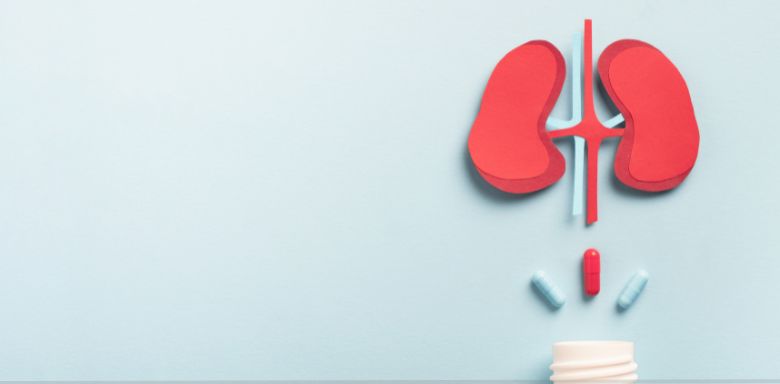Wellness Beyond the Diagnosis
Kidney disease means your kidneys have some level of damage and are not functioning as well as they should. The extent of kidney damage may vary. Typically, the greater the kidney damage, the more symptoms a person has.
Kidney disease can develop for several reasons. For instance, lung and heart problems may sometimes lead to chronic kidney disease. People with other chronic diseases, such as diabetes, can also develop chronic kidney disease (CKD).
Unfortunately, the kidneys cannot repair themselves naturally. However, some treatments may help prevent kidney damage from worsening.
A multidisciplinary approach incorporating exercise, nutrition and lifestyle changes is often best. If you have kidney disease, learning self-care tips to manage the condition is helpful.
Practical Self-Care Ideas for Those Living with Kidney Disease
The article below covers several suggestions for chronic kidney disease self-care, such as the following:
Monitor Your Blood Pressure Regularly
According to the National Institute of Diabetes and Digestive and Kidney Diseases (NIDDK), controlling your blood pressure is one of the most important chronic kidney disease self-care strategies you can do. High blood pressure can further damage your kidneys. Talk to your doctor about what is healthy blood pressure for you. According to the American Heart Association, a blood pressure of 120/80 is considered a normal reading. Check your blood pressure regularly and reach out to your doctors if your numbers climb too high.
Plan Your Meals in Advance
It is important to follow the dietary guidelines from your doctor or nutritionist. You may have restrictions on certain foods. If you are hungry, it is easy to reach for the quickest or easiest thing, even if that is not something you should eat. By planning your meals and meal prepping, you’ll increase the chances of sticking to your dietary guidelines. Meal prepping allows you to have food ready and available when you want it.
Lower Sodium Intake
Eating foods high in salt can increase blood pressure and make your kidneys work harder. The NIDDK recommends that people with CKD consume less than 2,300 milligrams of sodium per day.
There are several things you can do to lower your salt intake, such as the following:
- Read food labels to learn which foods are high in salt.
- Track your sodium intake with a nutrition app.
- Make certain dishes at home, such as soup, which when prepared from a can tends to have high sodium.
- Add spices to foods instead of salt.
Adjust the Amount of Protein You Eat
Your body needs protein to help build muscle. But protein also produces waste, and your kidneys remove that waste. Increased protein intake can make your kidneys work harder.
However, depending on your treatment for kidney disease, you may need to add protein. For instance, people with CKD who require dialysis treatment may need to eat more protein. The increased protein need is because dialysis efficiently removes protein waste from the blood.
Since it may depend on your unique situation, talk with your doctor about how much protein you need.
Stop Smoking
Smoking can make CHK worse. It can further damage the lungs and heart and may adversely impact the kidneys. It can also interfere with certain medications used to treat people with kidney disease, such as blood pressure drugs.
Stopping smoking will not reverse kidney disease. But it may help slow the progression of the disease. Talk to your doctor about options to help you stop smoking. Treatment may include nicotine replacement therapy or medications.
Get Regular Exercise
Physical activity is vital as a chronic kidney disease self-care step. Regular exercise can improve your overall well-being. In general, benefits of exercise include:
- Increased energy.
- Stronger muscles.
- Improved balance and reduced fall risk.
- Improved blood pressure control.
- Lower cholesterol and triglycerides.
- Better weight management.
- Stress management.
Find activities you enjoy, such as walking, dance classes and weight training. Aim for 30 minutes of exercise on most days of the week.
Join a Support Community
Dealing with chronic kidney disease can become overwhelming. It can be helpful to find a supportive community of people coping with the same thing. There are both online and in-person support groups for people with kidney disease. A support group can help provide information, ideas and friendship. Ask your doctor, dialysis center or the National Kidney Foundation for resources.
Do Things You Enjoy
Managing kidney disease can be a challenge. It is easy to become consumed with managing a chronic medical condition. But you don’t want kidney disease to control your entire life. Try to make time for things you enjoy. Spend time with people you care about and have fun. Remember, it is possible to have a good quality of life and thrive with chronic kidney disease.
Article Resources
- Managing Chronic Kidney Disease | National Institute of Diabetes and Digestive and Kidney Diseases
- Understanding Blood Pressure Readings | American Heart Association
- Online Communities | National Kidney Foundation
- Eating Right for Chronic Kidney Disease | National Institute of Diabetes and Digestive and Kidney Diseases
